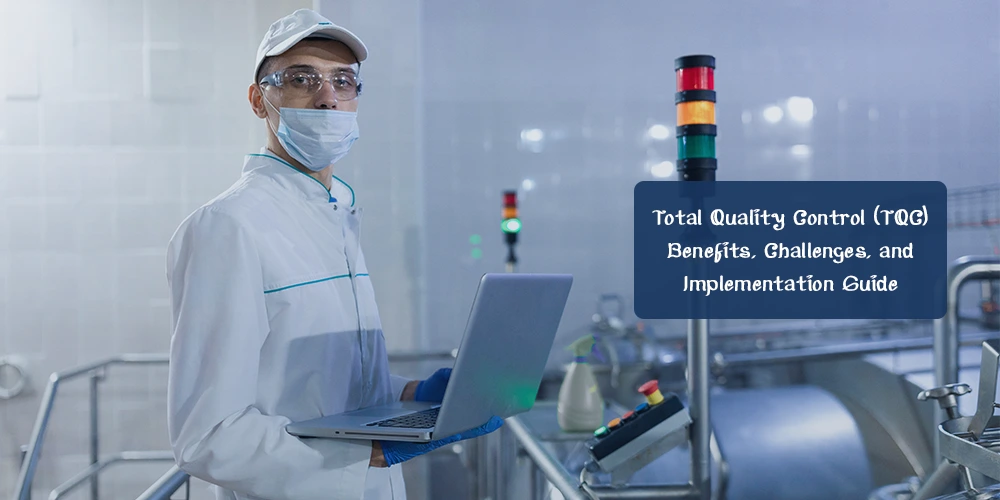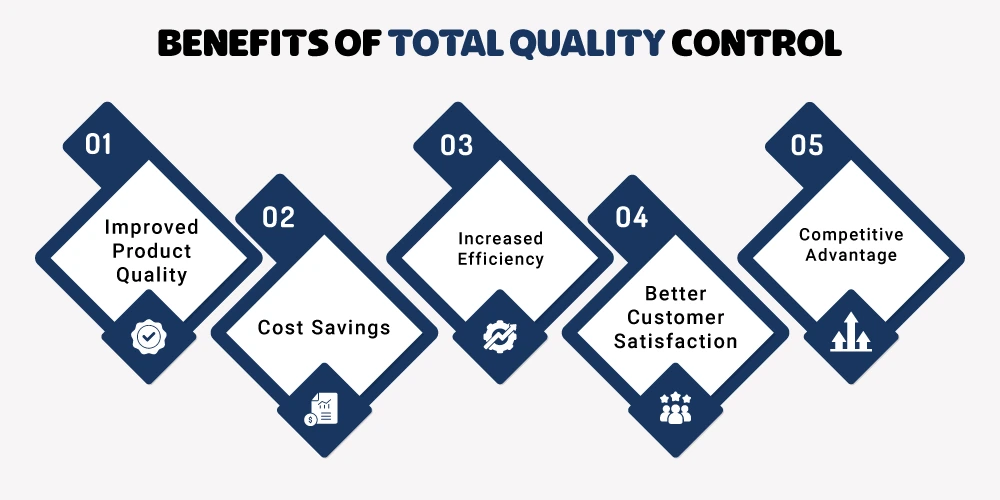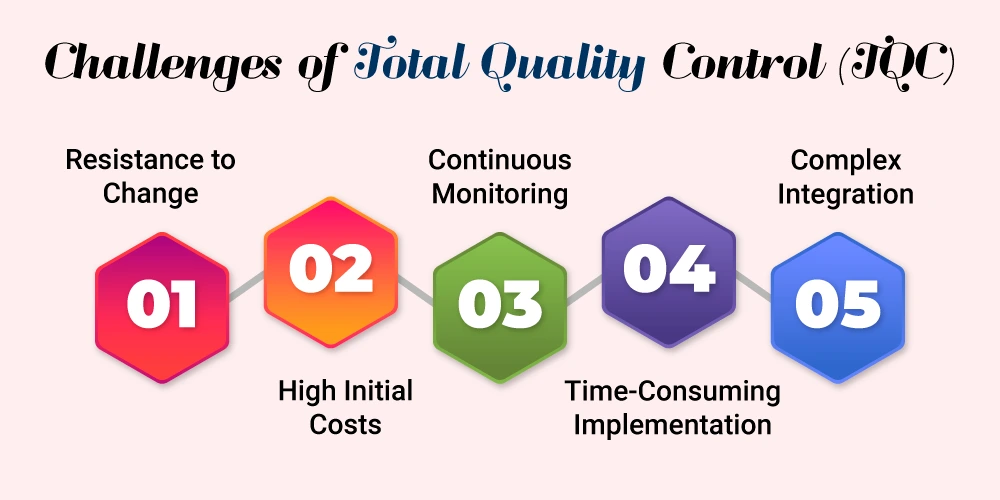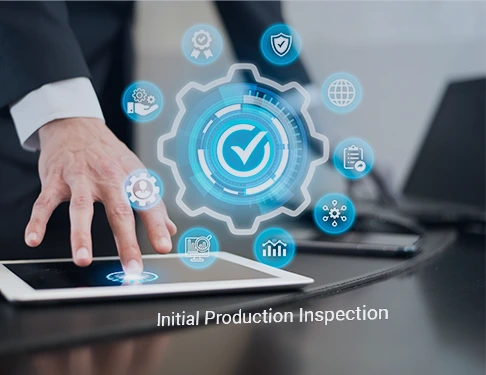Initial Production Inspection (IPI)
Quality control is not just about checking the finished product; it's about taking the right steps from ...
By AMREP | Posted on March 18, 2025

Total Quality Control (TQC) is a comprehensive approach to improving the quality of products, services, and processes within an organization. It emphasizes the involvement of every employee in maintaining high standards and continuously improving operations. The goal of TQC is to meet customer expectations and to foster a culture of continuous improvement and efficiency.
Total Quality Control (TQC) is a management approach that focuses on improving the quality of products and services at every stage of production. It involves all employees, from top management to workers, in ensuring quality is maintained throughout the entire process. TQC aims to enhance the company's operations, improve customer satisfaction, and drive business growth.
Key points about TQC include:
TQC emerged in the mid-20th century, primarily in Japan, as a response to quality issues in manufacturing. The concept was popularized by Armand Feigenbaum in the 1960s. His book Total Quality Control laid the foundation for what became a global movement in quality management. In the 1980s, Japan's focus on TQC led to the country becoming a manufacturing powerhouse. Today, TQC is integral to various industries worldwide.
Implementing Total Quality Control (TQC) can lead to a wide range of advantages, which include:

TQC helps improve product quality by focusing on continuous monitoring and early defect detection. It ensures that products consistently meet high standards. TQC reduces the likelihood of defects reaching customers. This helps prevent returns and reworks, resulting in greater reliability
TQC leads to cost savings by preventing defects early in production. Early detection reduces the need for rework, waste management, and customer compensation. Additionally, TQC optimizes processes. This reduces resource wastage, lowers energy consumption, and enhances operational efficiency.
TQC helps businesses streamline processes and identify bottlenecks. It reduces downtime and minimizes inefficiencies. By improving workflow, organizations can increase output without sacrificing quality. TQC also encourages cross-departmental collaboration, which boosts productivity.
High-quality products result in better customer experiences. TQC ensures that customer needs and expectations are met. This leads to higher customer satisfaction and loyalty. Furthermore, TQC integrates customer feedback, allowing products to evolve based on user preferences and market trends.
High product quality helps businesses stand out in a competitive market. TQC gives companies a significant edge over their competitors. By consistently delivering superior products, businesses strengthen their brand reputation. This attracts more customers, partners, and investors.
Read More: QC Tests and Checks in Quality Management
While Total Quality Control (TQC) offers significant benefits, its implementation also presents several challenges, such as:

Implementing TQC often faces resistance from employees and management. This is especially common in organizations with traditional quality management systems. Employees may be reluctant to adopt new practices or technologies. This resistance can slow down the implementation process and create friction among teams. Overcoming resistance requires strong leadership, clear communication, and consistent training.
TQC offers long-term benefits, but the initial investment can be significant. The costs include employee training, adopting new technology, and revamping existing processes. Smaller companies may struggle to bear these upfront costs. However, the return on investment is typically substantial over time, making it worthwhile.
TQC requires consistent and rigorous monitoring to maintain optimized processes. Ongoing audits, quality checks, and performance assessments are necessary. These activities can strain resources. Without continuous monitoring, quality standards can slip, reducing the effectiveness of TQC practices.
Implementing TQC is not a quick fix. It requires a thorough evaluation of existing processes and staff training. New practices must be gradually integrated into the system. Organizations must be committed to continuous improvement and long-term change. The benefits of TQC may take time to materialize.
Integrating TQC across multiple departments can be difficult. Different departments may have different priorities or workflows. Aligning everyone under the TQC umbrella becomes a challenge. Achieving integration requires strong leadership and clear communication throughout the organization.
Must See: Quality Control Skills
Read More: How to Become a Quality Control Inspector
At AMREP, we are committed to helping businesses streamline their processes and achieve excellence through robust quality control strategies. Embracing TQC not only elevates your products and services but also builds a culture of continuous improvement. Ready to take your quality to the next level? Let's get started today!
At AMREP, we are committed to helping businesses streamline their processes and achieve excellence through robust quality control strategies. Embracing TQC, not only elevates your products and services but also builds a culture of continuous improvement. Ready to take your quality to the next level? Manufacturing experts at AMREP can help guide you through the process. Let’s get started today!
Contact Us To See What We Can Do
Call Us
Mon - Sat 9.00 - 18.00
Sunday Closed


28 - February 2025
28
February
2025
Quality control is not just about checking the finished product; it's about taking the right steps from ...

27 - February 2025
27
February
2025
Quality isn’t a choice; it’s a commitment that begins the moment production starts. PwC’s Global Manufacturing Report suggests that companies ...

19 - February 2025
19
February
2025
Companies rely on QC professionals to detect defects, prevent errors, and improve processes. But what skills are necessary for success in this field? To excel ...
